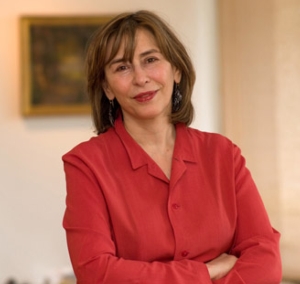Samuel Beckett, that most modernist of writers, was born a century ago. He died in 1989. This year, conferences, screenings and performances in honour of this reticent Nobel prize winner will take place from Dublin to Tokyo, London to Florida. Born 13 April 1906 in Foxrock, County Dublin, his name remains a byword for a peculiarly miserabilist sensibility in which words fail, things get ever worse and no one ever turns up. With his etched and awesomely austere appearance, it is all too easy, despite the sheer volume of publications the 'Beckett industry' remains something of an academic juggernaut to imagine that Beckett can be summed up in a pithy line or two: 'pessimistic Irishman', perhaps, or as the author of plays in which "nothing happens twice" (as the critic Vivian Mercier famously described Waiting for Godot). Beckett has always proven something of a slippery catch for his interpreters. Always over-eager to pin labels on writers and coin memorable names for movements, he has been variously described as an existentialist, a nihilist, a stoic, a pessimist, an absurdist, an arch-modernist, a postmodernist, or, especially in the early days, simply incomprehensible. One should not forget the rapid turnaround in his popularity after initial performances of his plays played to empty theatres and fuming critics; from avant-garde outsider to voice of a generation in a matter of months. His undoubted formal innovations in theatre and literature (as well as television and radio), which include a 35-second play consisting of two cries and a single breath (Breath) and a novel written entirely without punctuation (How It Is), not to mention the total destruction of all consistent narration in perhaps his most famous prose work, The Unnamable, has perhaps meant that he is not as widely-read or his plays as often-seen as one might expect from someone so ostensibly celebrated. Beckett's reputation tends to rest, for the most part, upon a couple of tropes from the dramatic works: the suicidal tramps, endlessly waiting for 'Godot' (the precise meaning of whom Beckett reputedly said "If I knew, I would have said so in the play"), or the sadomasochistic couple of Endgame.
Philosophers, however, have always been drawn to Beckett's often allusive classical and metaphysical statements virtually every European philosopher worth his or her salt (and several British ones to boot) has attempted to unlock the meaning behind enigmatic, yet comic, lines such as "I can't go on, I'll go on" (The Unnamable), "fail again, fail better" (Worstward Ho) and "you're on Earth, there's no cure for that!" (Endgame). Adorno, Bataille, Blanchot, Deleuze, Derrida, and Foucault have all written on various aspects of Beckett's work, from politics to silence, from the 'death of the author' to Beckett's incursion into cinema (the splendid Film with Buster Keaton from the mid-60s). Most were concerned to distance Beckett from earlier interpretations that saw him as a kind of existentialist, preoccupied with making decisions in a hostile universe, and were opposed to grand ideas like the 'human condition'. The 'liberal humanist' who saw in Beckett the pathos of man railing against the tragedies of the cosmos became the enemy for a whole generation of critics, desperate to dismiss the idea that Beckett was writing about 'man' at all so much as the inherent opacities of language, and the impossibility of communication, or even, and most self-referentially, the impossibility of writing anything substantive about Beckett's work at all. This last position is perhaps summed up in Jacques Derrida's succinct half-humble, half-supercilious admission that "Beckett, whom I will thus have 'avoided' as though I had always already read him and understood him too well." But Beckett has, in the end, always seemed much too clever for the philosophers, what with, as the narrator of The Unnamable puts it, "all their balls about being and existing".
So what hope for Beckettian humanists? Whilst it is wise to heed the advice of one of Beckett's earliest commentators, that "In a meaningless universe, it is always foolhardy to make positive statements" (Martin Esslin), there is certainly a case to be made for another kind of Beckett, one lurking beneath the misery and absurdity, one that speaks, perhaps surprisingly, of a certain brief flashes of hope, of the fleeting possibilities of love, in a style shot through with a bitter humour that cuts to the quick. An outlook we could call, not without a little caution, a 'minimal humanism'. We can share the spirit of the early humanist readings of Beckett, without nevertheless engaging in sweeping statements about the extent to which Beckett demonstrates such-and-such 'truth' about the human condition.
Certainly Beckett did not wish to eulogise the baroque richness of life, or bellow out a pompous atheism in the postwar period this would hardly have seemed appropriate, morally or aesthetically, especially given Beckett's own risky involvement in the French resistance, having returned to Paris from Ireland in 1937. But we can trace this outline of this restricted humanism in the bickering but inseparable couples of the plays and prose, in the wry jokes, the slapstick, the gentle acknowledgement of physical limitations and old age. There is a revelation, particularly in the later works, of the startling emergence of love and the comfort of companionship (something Beckett was to experience in his own life in his long and comradely marriage to Suzanne Deschevaux-Dumesnil). As the narrator of the 1961 novel, How It Is, puts it: "they were I quote good moments somehow or other good moments when you think." Beckett's cloistered characters may be bedridden, trapped in jars, up to their necks in sand, but their dogged perseverance, even in the face of utter desolation, to carry on speaking, to communicate with others, demonstrates an admirable tenacity.
Nina Power is a PhD candidate in philosophy at Middlesex University

